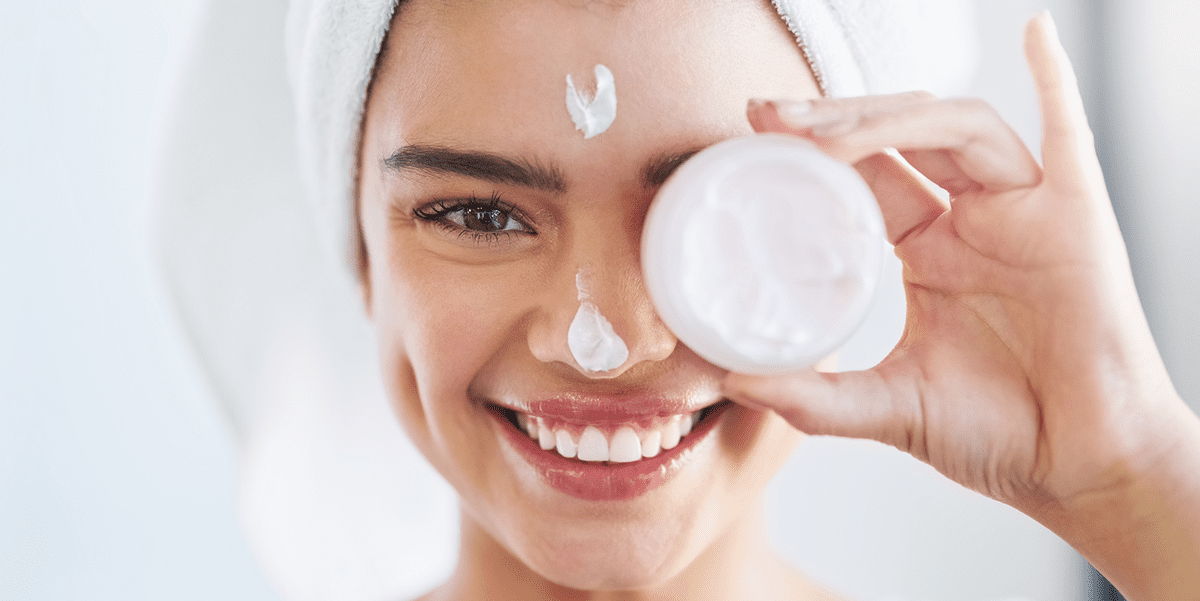No matter whether you have dry, oily, sensitive or normal skin, a good daily skincare routine can help you maintain good overall skin health and improve any specific concerns or complaints that you might have, like dark spots, acne or scarring. Proper, daily care of your skin usually consists of four basic steps that you should do once in the morning and again before you go to bed.
Cleansing
Cleansing your face will keep it fresh and make sure that your pores don’t end up clogged and lead to breakouts. Select a gentle cleansing product that doesn’t leave your skin feeling tight after you wash it. Clean your face twice a day, or just once a day if you tend to have dry skin and don’t wear a lot of makeup. When washing your face, don’t scrub too hard – that squeaky-clean feeling can actually do more harm than good because it means that your skin’s natural oils have been stripped away.
Use a Good Serum
Using a good serum on your skin in the morning and evening will nourish it with the nutrients that it needs to look and feel its best. A hydrating hyaluronic acid serum is an ideal choice for applying to your skin after cleansing or if you have dry skin. In the morning, a serum containing vitamin C, or the best peptides for the skin is a good idea applied under sunscreen or a good moisturizer containing SPF. At night, a serum containing retinol is an ideal choice to help your skin replenish and heal as you sleep.
Moisturize
Moisturizing is one of the most important ways to take care of your skin, and even oily skin types need moisturizer. If you have oily skin and are worried about making it worse, select a moisturizer that is gel-based, lightweight, and non-comedogenic. On the other hand, dry skin types tend to benefit more from cream-based moisturizers. If you have sensitive skin, choose a moisturizer with all-natural ingredients. It’s a good idea to have a lighter moisturizer to apply in the morning during the day; choose one containing SPF as this will also act as a sunscreen on your face and protect your skin from harmful UV rays when outdoors. At night, you can usually get away with applying a thicker night cream to soak into your skin overnight.
Sunscreen
If your daily moisturizer does not contain SPF, you should apply a sunscreen with at least 30 SPF around fifteen minutes before going outside to give the sunscreen enough time to activate. If you have a darker skin tone, you will actually need more sun protection compared to lighter skin tones since hyperpigmentation is harder to correct.
Starting a New Skincare Routine
There are thousands of different skincare products available and finding the right option for your skin can be tricky. Start out with a simple, basic skincare routine of cleansing and moisturizing to see how your skin reacts. Once you are comfortable with it and know which ingredients are best for your skin, you can start to add extra products like masks, exfoliants, and spot treatments to your routine to further improve your skin.
If you’re looking to add a new product to your skincare routine, it’s a good idea to conduct a patch test first, especially if you have sensitive skin. To do this, apply a small amount of product on your skin in a discreet area like your inner wrist, and wait for 48 hours to see if your skin reacts at all. A reaction may include redness, irritation, small bumps, or itchiness. If you experience any of these, wash the area and don’t use the product.
Taking proper care of your skin doesn’t require a lengthy routine or expensive products. Sticking to these simple steps in the morning and evening can make a huge difference.








